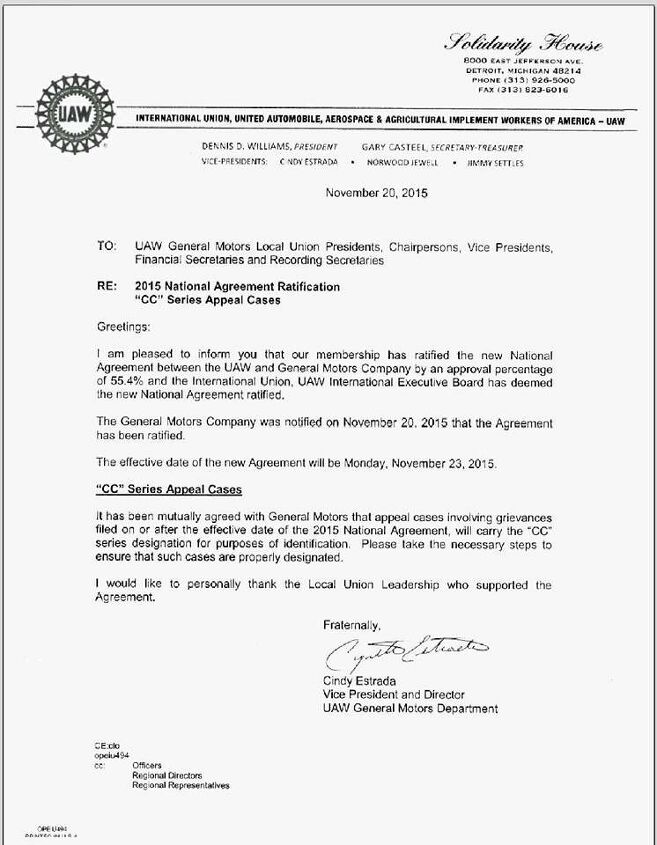#UawFord
Ford Super Duty Parts Issue Makes It 'Impossible to Build' Lost Units
Ford was supposed to start rolling out their 2017 Super Duty trucks much earlier than they eventually did. The holdup, attributed to a parts issue, is over, but Ford isn’t out of the woods yet.
Rodney Janes, UAW chair for the affected Louisville truck plant, told The Wall Street Journal it would be “impossible to build all the lost units” that were held up during this summer’s parts snafu.
Ford UAW Workers Narrowly Approve Contract, UAW Executive Board Ratifies GM Deal
A week before Thanksgiving, the United Auto Workers and all of the domestic automakers know they will enter the holiday season without having to worry about a strike.
According to the Detroit News, the UAW announced late Friday that their members at Ford approved a proposed contract by a narrow 51.4-percent margin.
That news followed closely the union’s announcement that its International Executive Board considered ratified its contract with General Motors. It will go into effect starting next week. That deal had been delayed because, although the overall vote was in favor of the contract, almost 60 percent of skilled trade members of the UAW at GM voted against it.

















Recent Comments